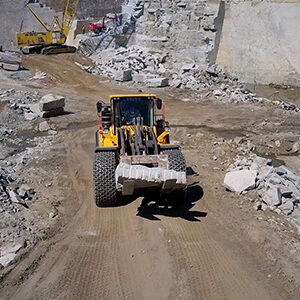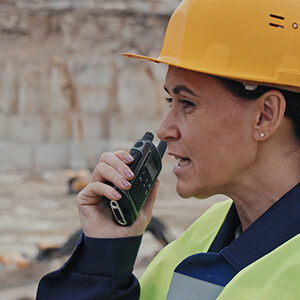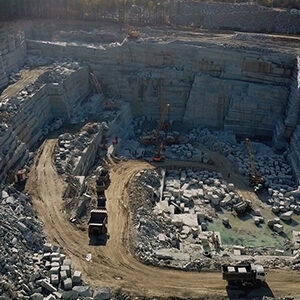Granite – Highest Machine Precision Thanks to Mother Nature
Especially when it comes to the highest precision requirements, machine builders from the various industries like to rely on granite. Particularly when the components to be processed are extremely small, precision comes into even sharper focus, as in the semiconductor industry with DIE bonding.
The Significance of Granite in Mechanical Engineering
This is why our machine chassis are made of granite, because it is a deep rock, formed from magma within the earth’s crust, which enables high precision due to its material composition. We therefore offer our DIE Bonder T-6000-L/G and the T-8000-G with a pure granite chassis
Granite's Outstanding Properties
Outstanding Thermal Performance
The low coefficient of thermal expansion and the very good thermal and vibration-damping properties of granite were the main reasons why we chose this natural material as the chassis base. Because thanks to the use of granite, our DIE Bonders work with high precision even in warm, subtropical regions and unair-conditioned production centres.
Stability to Temperature Fluctuations
Due to its low thermal conductivity and higher heat capacity, granite reacts much more sluggishly to temperature changes than metallic materials, such as a machine chassis made of steel or aluminium. Temperature differences, especially when they occur for a short time, as in a soldering process that can be carried out inside our DIE Bonder, lead to permanent geometry changes in steel and grey cast iron.
Efficient Vibration Control
Vibration damping was also a decisive criteria, because even though our DIE bonders travel at low speeds in X and Y, unnecessary natural and external vibrations should be avoided given the high precision requirements in the semiconductor industry.
Granite's Environmental Advantage
Furthermore, the energy and CO2 balance of granite is also positive compared to concrete and steel, as the extraction of the granite blocks in the quarry, including transport, causes less energy expenditure than the production of steel and concrete.


